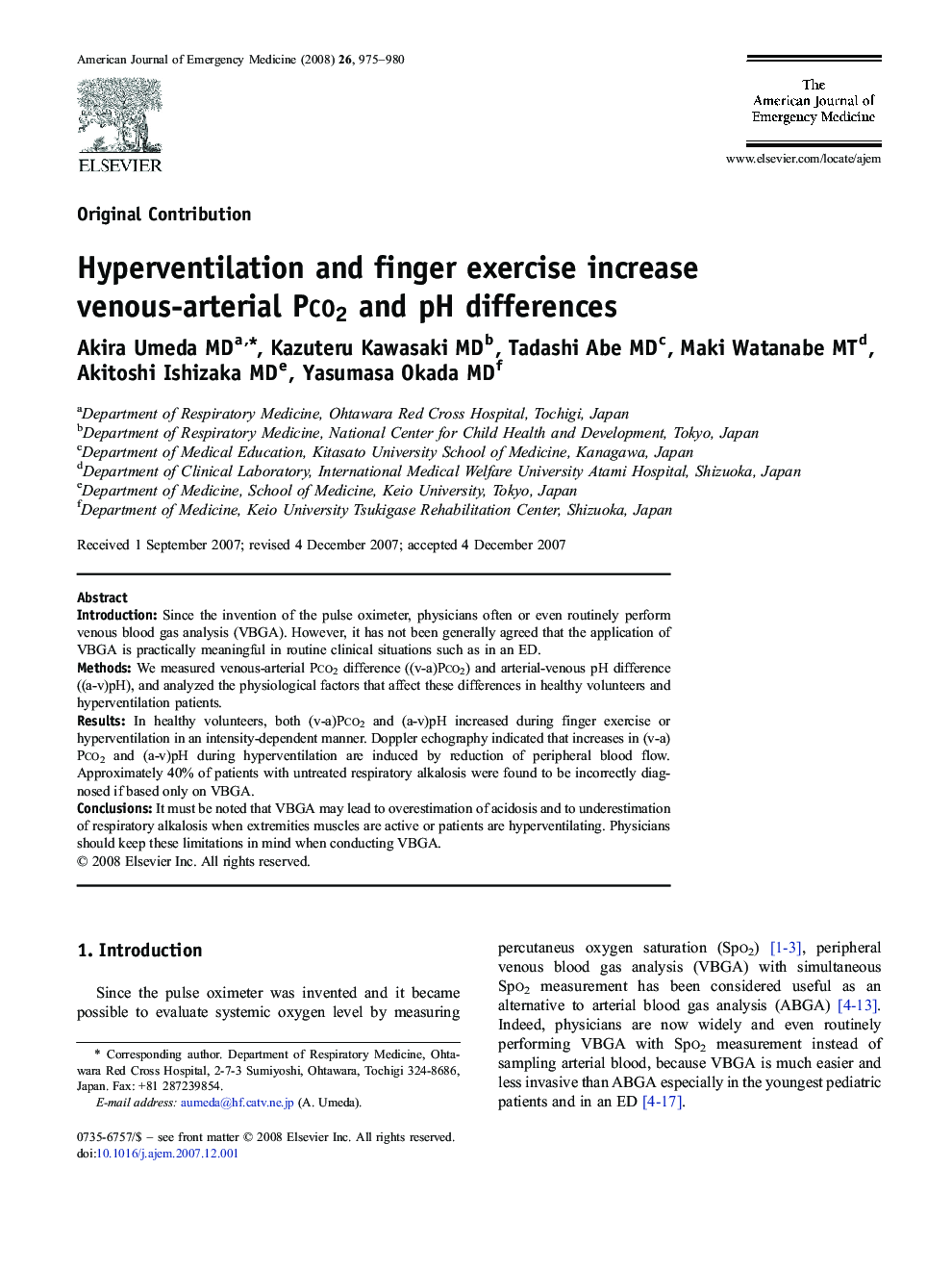| Article ID | Journal | Published Year | Pages | File Type |
|---|---|---|---|---|
| 3226537 | The American Journal of Emergency Medicine | 2008 | 6 Pages |
IntroductionSince the invention of the pulse oximeter, physicians often or even routinely perform venous blood gas analysis (VBGA). However, it has not been generally agreed that the application of VBGA is practically meaningful in routine clinical situations such as in an ED.MethodsWe measured venous-arterial Pco2 difference ((v-a)Pco2) and arterial-venous pH difference ((a-v)pH), and analyzed the physiological factors that affect these differences in healthy volunteers and hyperventilation patients.ResultsIn healthy volunteers, both (v-a)Pco2 and (a-v)pH increased during finger exercise or hyperventilation in an intensity-dependent manner. Doppler echography indicated that increases in (v-a)Pco2 and (a-v)pH during hyperventilation are induced by reduction of peripheral blood flow. Approximately 40% of patients with untreated respiratory alkalosis were found to be incorrectly diagnosed if based only on VBGA.ConclusionsIt must be noted that VBGA may lead to overestimation of acidosis and to underestimation of respiratory alkalosis when extremities muscles are active or patients are hyperventilating. Physicians should keep these limitations in mind when conducting VBGA.
